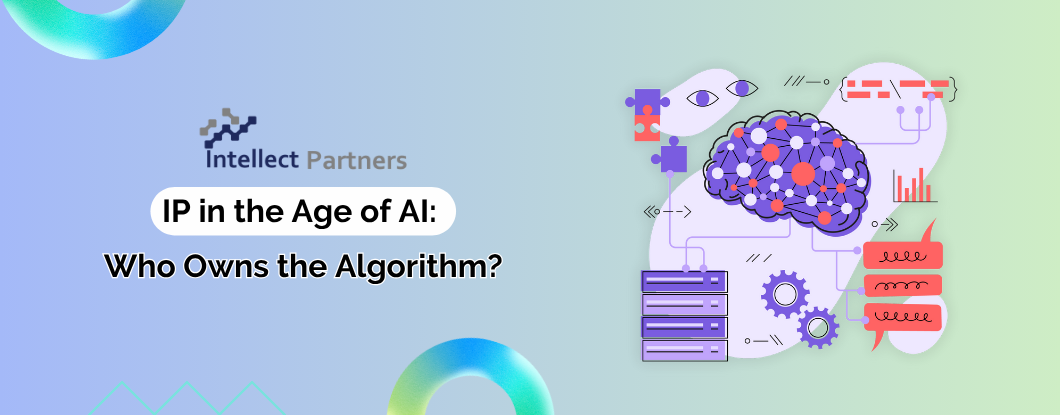In an era where artificial intelligence systems are designing new drugs, composing symphonies, and even writing code, the lines between creator and machine are becoming blurred. As AI continues to infiltrate nearly every industry, the question of intellectual property (IP) ownership is more relevant—and more complex—than ever before.
But when it comes to algorithms, especially those designed by or with the help of AI, who really owns the rights?
A Shifting Landscape
Traditionally, intellectual property laws were crafted with human inventors, artists, and developers in mind. The statutes assume a direct line between a person and their creation. But now that machines can “create” based on training data and optimization, the framework no longer fits as neatly.
Take, for example, a neural network trained to generate new software code. If a developer sets up the AI model, feeds it data, and configures the learning parameters, but the final product—the code—is generated independently by the system, is the developer the owner? Is it the company behind the data or the platform that trained the model?
This is not a hypothetical scenario. It’s playing out in courtrooms, patent offices, and legal think tanks around the world.
Understanding the Types of AI Creations
To unpack the issue, it helps to distinguish between different types of AI-driven work:
- AI-Assisted Creation: A human uses AI tools as support (e.g., using AI to generate image suggestions for a design). Here, IP rights usually stay with the human.
- AI-Generated Creation: The final product is produced entirely or mostly by AI, without detailed human direction. This is the grayest area.
- Autonomously Invented Algorithms: The AI system is responsible for developing new algorithms or processes, such as optimizing supply chain routes or discovering new mathematical formulas.
Each of these scenarios raises unique legal and ethical questions. But they all boil down to the same dilemma: should a machine be recognized as an inventor or author?
What the Law Says (and Doesn’t Say)
In the U.S., the Patent and Trademark Office (USPTO) and the Copyright Office have taken a firm stance: only natural persons (i.e., humans) can hold copyrights or patents. This means that any submission must identify a human as the inventor or author, even if the AI was the actual creator.
Other countries are starting to diverge. The United Kingdom and Australia have seen cases where AI-generated inventions were debated in court. In a notable instance, Dr. Stephen Thaler submitted patents listing his AI, DABUS, as the sole inventor. Courts in the U.S. and UK rejected the claims, while Australia briefly accepted them before backtracking.
These mixed responses reveal how ill-equipped current legal systems are for this technological reality.
Corporate Ownership and the Role of Data
The question of ownership becomes even murkier when you consider the data used to train the algorithm. AI systems are only as good as the data they’re fed—often vast, proprietary sets collected over years.
If Company A develops the AI platform, and Company B licenses it to generate new IP, who owns the result? The answer often comes down to contract law rather than IP law. It’s increasingly common for companies to bake IP clauses into licensing and partnership agreements.
Moreover, data privacy and ownership further complicate the conversation. If an AI model is trained on user-generated data, do those users have any rights over the model’s outputs? So far, most jurisdictions say no, but that could change.
What Startups and Innovators Should Do
For entrepreneurs working in AI or using AI to develop products, these are not distant academic concerns—they’re core business risks. Here are some ways to navigate this tricky terrain:
- Document Human Contribution: Make sure there’s a clear record of how humans were involved in shaping, guiding, or supervising the AI’s output.
- Review Licensing Agreements Carefully: If you’re using third-party AI tools, check who owns what under the hood.
- File IP Early: Even provisional patents can help stake a claim to ownership before a competitor beats you to it.
- Consult with an IP Attorney: Especially one with experience in AI or emerging technologies.
A Glimpse at the Future
Ultimately, the law will need to evolve. There is growing recognition that traditional IP frameworks are too rigid to handle AI’s capabilities. Some experts advocate for a new category of IP ownership—something between traditional authorship and corporate control.
Others suggest updating definitions of “inventor” or “author” to allow for shared credit between AI and human operators. Whether this happens soon or decades from now will depend on political will, judicial interpretation, and economic pressure.
What’s clear is that the future of innovation is entangled with AI. If we don’t adapt our IP systems, we risk stifling the very innovation these systems were designed to protect.

